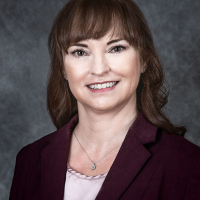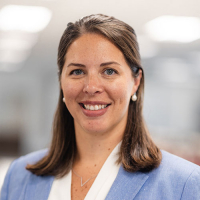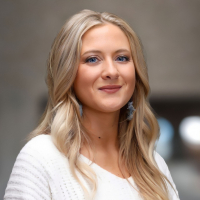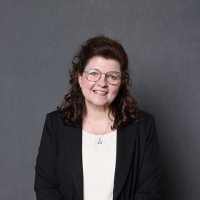
Master of Science in Nursing | Family Nurse Practitioner
-
Duration
5 Semesters (Full Time)
-
Format
Online
-
LOCATION
Online
Program Overview
The Master of Science in Nursing program prepares students for their role as an advanced practice nurse who functions as the primary care practitioner to individuals across the lifespan in a variety of inpatient and outpatient clinical settings.
The degree offers an emphasis on practice as a Family Nurse Practitioner (FNP), to enable students to take their career to a higher level. Through this program, you can develop the knowledge and skills to assume advanced practice roles.
The didactic courses provide the knowledge, theoretical concepts, and research that inform today’s patient care and evidence-based practice. The clinical courses enable students to gain skills in clinical decision making and differential diagnosis, patient teaching, assessments, and interventions.
Our degree enables graduates with the knowledge and skills required to sit for the FNP national certification board examination offered by the American Nurses Credentialing Center (ANCC) or the American Academy of Nurse Practitioners (AANP).
Accreditation Status Update
The master’s nursing program at the University of Charleston at the Charleston campus located in Charleston, West Virginia, is accredited by the: Accreditation Commission for Education in Nursing (ACEN).
3390 Peachtree Road NE, Suite 1400 Atlanta, GA 30326
(404) 975-5000
The most recent accreditation decision made by the ACEN Board of Commissioners for the master’s nursing program is initial accreditation.
View the public information disclosed by the ACEN regarding this program on the ACEN website.
The Mission
The mission of the Master of Science in Nursing (MSN) program is to prepare ethical, safe, and effective advanced practitioners of professional nursing across the lifespan.


Application Deadline
The Fall 2025 cohort is now full and applications are no longer being accepted for a fall term start. Applications for Spring 2026 are being accepted with an application deadline of October 1, 2025. Spring applicants will be informed of their admission status by November 1, 2025.
To apply to the program, students must:
- Have a BSN from an accredited institution with a minimum final GPA of 2.50 as evidenced by the final, official transcript with the BSN conferral. The institutional transcript documenting the BSN conferral will be the only transcript required for a complete application packet. (BSN in progress may be considered for a conditional admission status.)
- Have a current, active, unencumbered US registered nurse (RN) license (Authorization to Test may be considered for a conditional admission status)
- Have a personal commitment to the rigor and time of the program
- Submit a written statement of purpose
- Submit the contact information for two (2) professional recommenders
- Submit a resume/curriculum vitae (CV)
Transfer Students
The Capito Department of Nursing accepts transfer students for the master’s degree program. In order to gain admission to the graduate nursing program students must:
- Have a GPA of 2.50 or greater in the master’s degree program from which the student wishes to transfer.
- Transferred courses must have been taken for credit.
- Students may transfer nursing courses where a ‘B’ or higher has been obtained except any courses where APEA is used with standardized testing.
- Individual consideration for course acceptance will be evaluated prior to transfer credit being confirmed
- No more than 9 credits will be accepted for transfer.
- Credit for other graduate nursing courses earned more than five (5) years ago cannot be transferred.
- Course syllabi and transcripts are required for review by the program faculty in order to determine the number of possible transfer credits accepted. Course equivalency will be evaluated by the faculty currently teaching the UC version of the course. The designated faculty will make a recommendation to the Program Director regarding the substitution.
State Specific Licensure Notes
Due to clinical requirements of this program, students who have a permanent residence in the state of Louisiana must be able and willing to complete clinical in another state.
Compact licenses must be endorsed by students’ state of residence.
Program Highlights
-
Designed for the working RN, the program takes just 5 full time semesters to complete, with a total of 42 credits needed.
-
There are 750 required clinical hours that are completed in the last 3 semesters of the program. (This works out to be just 2 calendar days per week, which is designed by and built for working nurses.)
-
Two annual starts: Spring and Fall. (Spaces in this program are limited, so applying early is highly recommended.)
-
Program is online with no residency required.
-
The program can be completed in 5 semesters full time, or in 7 semesters part-time.
Program Outcomes
-
The most recent program on-time completion rate for 2023-2024 for the MSN program was 91%.
-
The most recent certification pass rate for first-time test takers and repeaters for 2023-2024 from the FNP program was 91%.
-
The most recent job placement rate for 2023-2024 graduates was 100%.
Full-Time Option – 5 Semesters
Semester 1
| Course | Credits |
| NURSM 501 Advanced Practice Roles | 3 |
| NURSM 502 EBP Research | 3 |
| NURSM 510 Advanced Pathophysiology | 3 |
Semester 2
| Course | Credits |
| NURSM 504 IT in Advanced Practice | 3 |
| NURSM 515 Advanced Pharmacology | 3 |
| NURSM 520 Advanced Assessment | 3 |
Semester 3
| Course | Credits |
| NURSP 625 Primary Care I | 5 |
| NURSM 503 Advanced Leadership | 3 |
Semester 4
| Course | Credits |
| NURSM 505 Healthcare Policy | 3 |
| NURSP 635 Primary Care II | 5 |
Semester 5
| Course | Credits |
| NURSP 645 Transitions: Advanced Nursing | 5 |
| NURSM 525 FNP Capstone | 3 |
Part-Time Option – 7 Semesters
Semester 1
| Course | Credits |
| NURSM 501 Advanced Practice Roles | 3 |
| NURSM 502 EBP Research | 3 |
Semester 2
| Course | Credits |
| NURSM 504 IT in Advanced Practice | 3 |
| NURSM 510 Advanced Pathophysiology | 3 |
Semester 3
| Course | Credits |
| NURSM 515 Advanced Pharmacology | 5 |
| NURSM 503 Advanced Leadership | 3 |
Semester 4
| Course | Credits |
| NURSM 505 Healthcare Policy | 3 |
| NURSM 520 Advanced Assessment | 5 |
Semester 5
| Course | Credits |
| NURSP 625 Primary Care I | 5 |
Semester 6
| Course | Credits |
| NURSP 635 Primary Care II | 5 |
Semester 7
| Course | Credits |
| NURSP 645 Transitions: Advanced Nursing | 5 |
| NURSM 525 FNP Capstone | 3 |
- Demonstrate safe, high quality, patient-centered and population care in advanced practice nursing through relevant sciences and health promotion. [NONPF Role Core Competencies Domains 1 – 10; 2021 AACN Essentials 1, 2, 3, 4, 5, 6, 7, 8, 9, 10]
- Apply evidence and research to support the Family Nurse Practitioner in practice. [NONPF Role Core Competencies Domains 1 – 10; 2021 AACN Essentials 1, 2, 3, 4, 5, 6, 7, 8, 9, 10]
- Demonstrates the attributes of an advanced practice registered nurse. [NONPF Role Core Competencies Domains 1 – 10; 2021 AACN Essentials 1, 2, 3, 4, 5, 6, 7, 8, 9, 10]
- Assess health outcomes within a systems framework using healthcare technology. [NONPF Role Core Competencies Domains 1 – 10; 2021 AACN Essentials 1, 2, 3, 4, 5, 6, 7, 8, 9, 10]
Please note:
- The University of Charleston is not regulated in Texas under Chapter 132 of the Texas Education Code.
- The Higher Learning Commission and NC-SARA are the agencies that approve and regulate the school’s programs in West Virginia where the school is physically located and in which it has legal authorization to operate.
- Any complaints can be filed with HLC at https://www.hlcommission.org/Policies/complaints-and-other-information-regarding-institutions.html and NC-SARA at https://www.nc-sara.org/student-complaints
Meet the Faculty & Staff
Meet the Faculty & Staff

Family Nurse Practitioner Program Director

FNP Clinical Coordinator/Assistant Professor, Graduate Nursing Program


